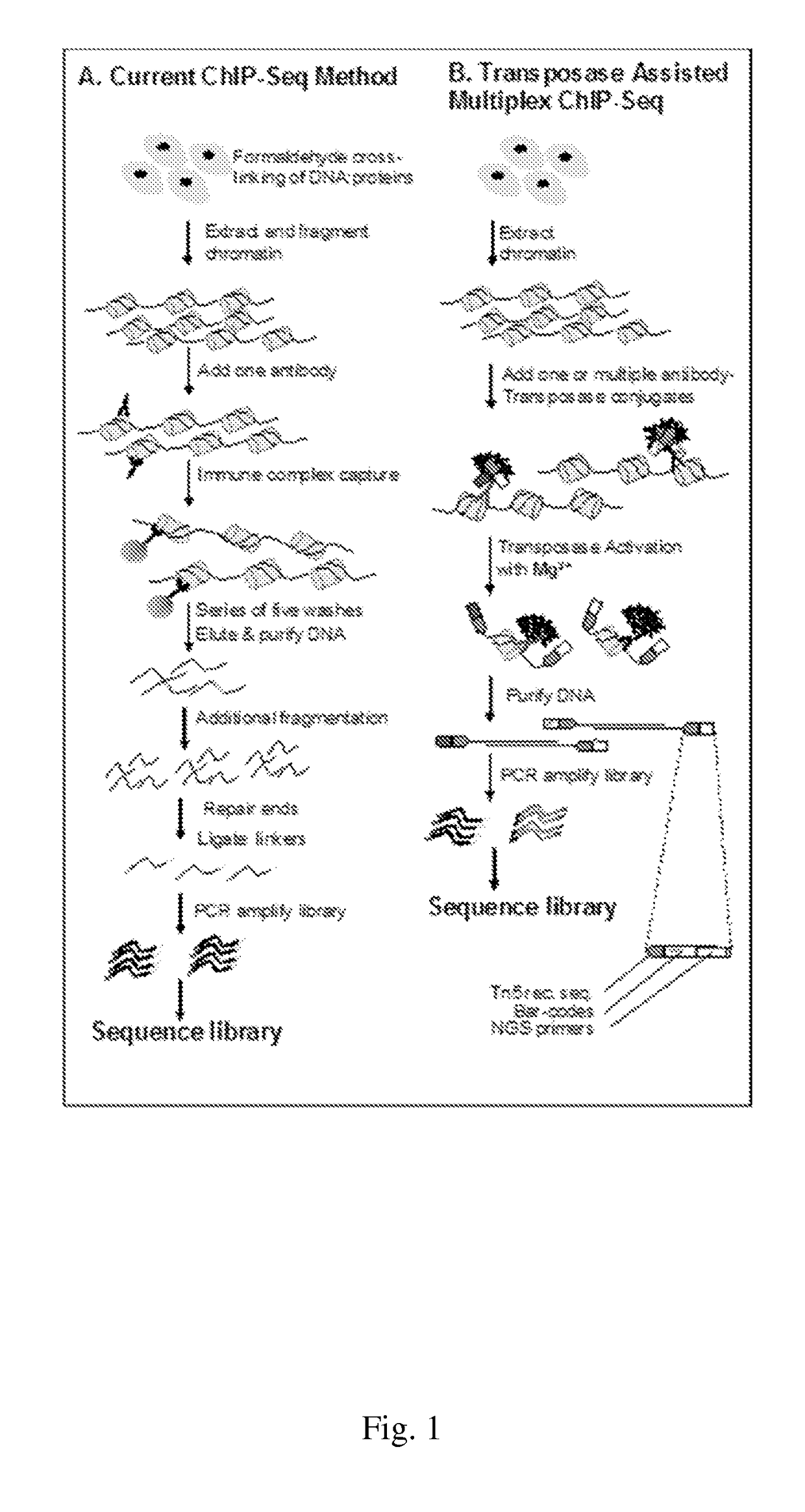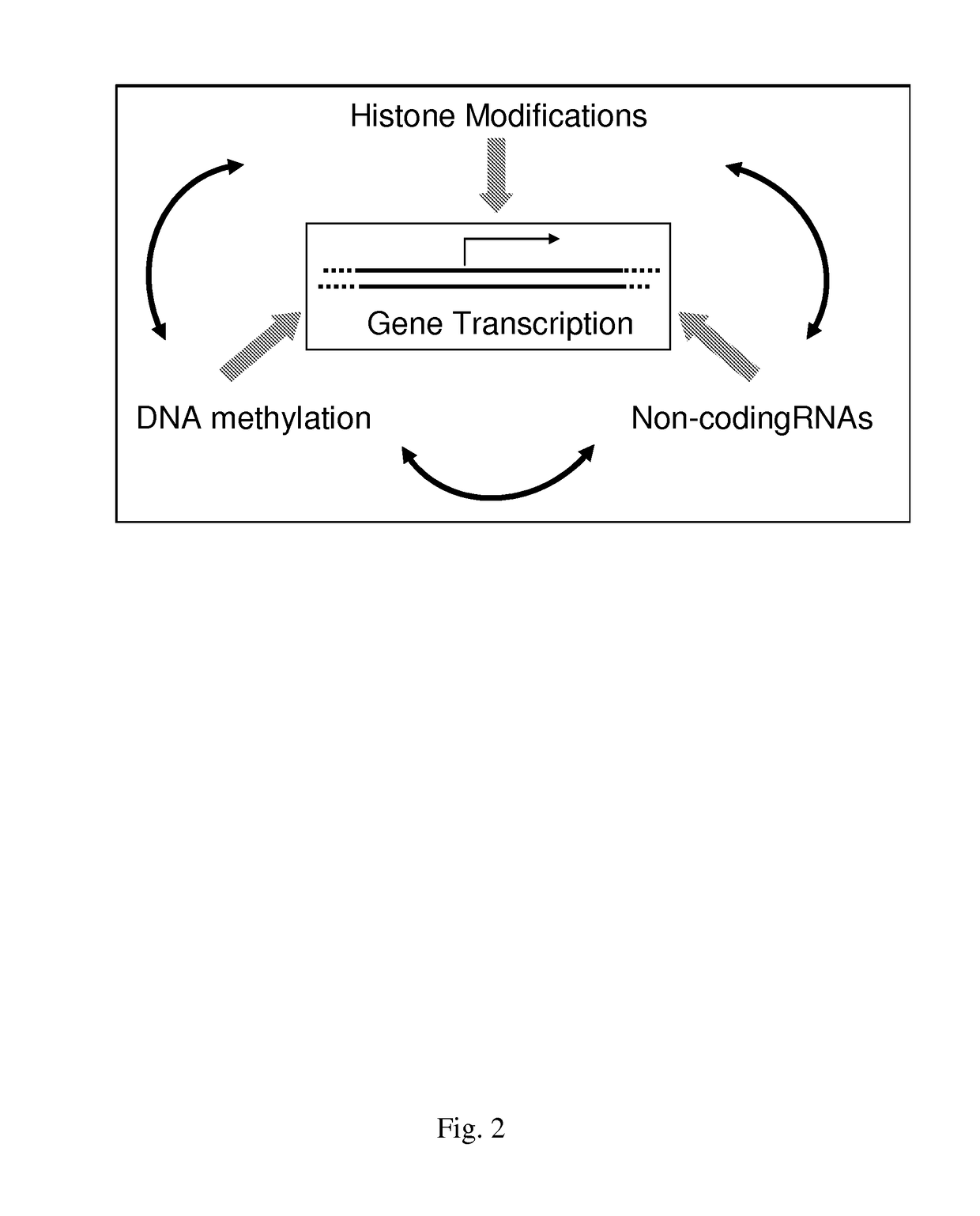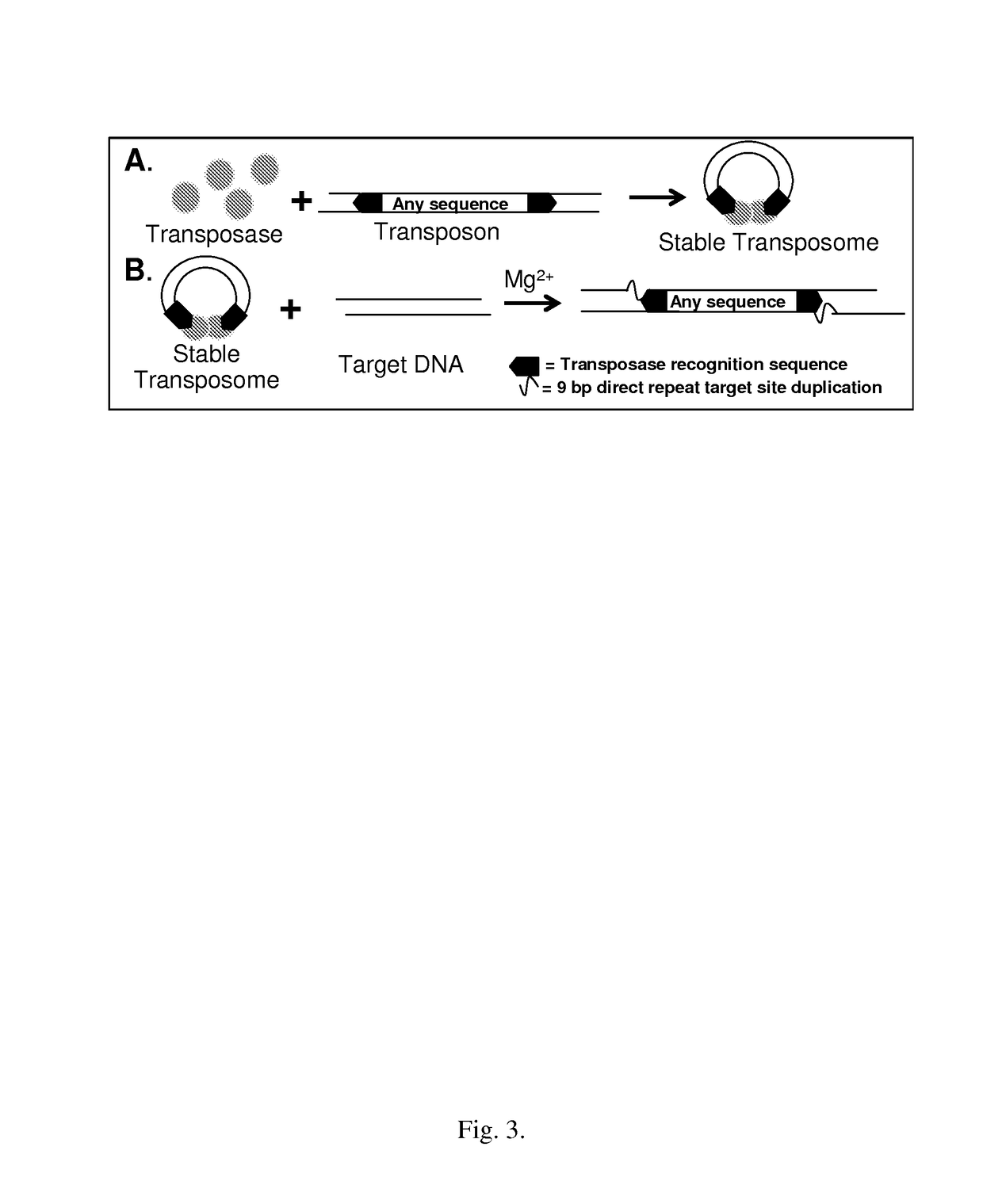Targeted transposition for use in epigenetic studies
a technology for epigenetic studies and targeted translocations, applied in the field of epigenetic studies, can solve the problems of unresolved mechanistic questions, large sample size requirements, and inability to efficiently capture protein-associated dna, and achieve the effect of facilitating ligation and promoting ligation
- Summary
- Abstract
- Description
- Claims
- Application Information
AI Technical Summary
Benefits of technology
Problems solved by technology
Method used
Image
Examples
example 1
TAM-ChIP
Preliminary Data
[0110]In order to improve the turnaround-time of conventional ChIP-Seq services, Epicentre's Nextera™ DNA Sample Prep kit, which uses the EZ-Tn5 Transposome™ and suppression PCR to generate NGS compatible libraries, was evaluated for suitability for use with ChIP-enriched DNA. ChIP was performed in duplicate using p53 antibodies and 30 μg chromatin extracted from estrogen stimulated MCF-7 cells (a human breast cancer cell line) following established protocols, and isolated DNA was then purified. Quantitative PCR was performed on known p53 binding sites to validate the specificity of the anti-p53 ChIP reactions (FIG. 4, Panel A). Untr12 is a negative control in a gene desert on human chromosome 12 and is not expected to be bound by p53.
[0111]The Nextera transposition reaction was performed using two quantities of ChIP DNA (FIG. 4, Panel B) according to the manufacturer's protocol. The DNA libraries were purified and used for PCR according to the Nextera protoc...
example 2
Antibody-Transposase Conjugates
[0116]TAM-ChIP requires that the enzymatic activity of the transposase preferably be unaltered, with regards to catalytic rate and randomness of integration sites, when coupled to another protein. Conjugations with various chemistries and crosslinkers of varying length are compared using ChIP validated antibodies. This example generates functional antibody-transposome conjugates.
[0117]An extensive number of ChIP-validated antibodies are commercially available or can be developed using conventional antibody production techniques. Here, antibodies to a chromatin associated protein (RNA polymerase II) and a structural chromatin protein, a histone (anti-histone H3 trimethyl-lysine 4 (H3K4tm) mark associated with transcriptionally active chromatin), are conjugated to the EZ-Tn5 transposome using any suitable approach, two of which are described below.
[0118]Antibodies can be chemically crosslinked either to the transposase (protein-protein) or to the transpo...
example 3
TAM-ChIP Optimization
[0120]Examples 1 and 2 above provides the basis for performing TAM-ChIP and demonstrating its benefits relative to traditional ChIP methods. The optimized chromatin extraction and fragmentation procedure above is combined with the antibody-transposome conjugate to perform the TAM-ChIP procedure. A method of comparing the genomic representation of the sequencing libraries produced by TAM-ChIP and traditional ChIP-Seq is also provided. This is done using two steps. The first step involves optimizing sets of conditions with regards to chromatin and antibody-transposase concentrations, optimization of incubation times using transposition the analytic methods describe above as the readout. The second step is a direct comparison of the genomic representation of the DNA libraries produced by TAM-ChIP with that of conventional ChIP-Seq methods.
[0121]An optimal protocol can be determined using the steps depicted in FIG. 7. First, the optimal amount of chromatin substrate...
PUM
| Property | Measurement | Unit |
|---|---|---|
| temperature | aaaaa | aaaaa |
| time | aaaaa | aaaaa |
| time | aaaaa | aaaaa |
Abstract
Description
Claims
Application Information
 Login to View More
Login to View More - R&D
- Intellectual Property
- Life Sciences
- Materials
- Tech Scout
- Unparalleled Data Quality
- Higher Quality Content
- 60% Fewer Hallucinations
Browse by: Latest US Patents, China's latest patents, Technical Efficacy Thesaurus, Application Domain, Technology Topic, Popular Technical Reports.
© 2025 PatSnap. All rights reserved.Legal|Privacy policy|Modern Slavery Act Transparency Statement|Sitemap|About US| Contact US: help@patsnap.com



